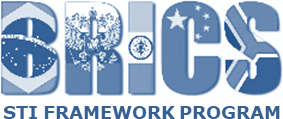Project “Monitoring and removal of antibiotics from wastewater by membrane separation”

The leader of this project and research group from Russia – Alexey Volkov.
The Russian team from Membrane Center of TIPS RAS will focus on the fabrication of NF membranes based on natural polymers with (i) extended stability towards biofouling by incorporation of Ag+, and (ii) washable selective layer based on nanocelluose. NF cellulose-based membranes will be fabricated by different approaches: a) the phase inversion method from cellulose solutions in ionic liquid/aprotic solvent, b) the composite membranes based on b) polyguanidine and c) sodium alginate cross-linked with bivalent cations and Ag+. Besides, nanocellulose will be applied as washable selective layer on the porous support, which can be also acted as adsorbent for organic pollutants; the selective layer can be replaced by back washing followed by the deposition of fresh nanocellulose.
Project “Development of membrane-based methods to improve the recovery of pure water and valuable products from the waste”

The leader of this project and research group from Russia – Alexey Volkov.
Alexey Volkov is a head laboratory of polymeric membrane (LPM) and deputy director of Topchiev Institute of Petrochemical Synthesis of Russian Academy of Sciences (TIPS RAS).
The Russian research group will focus on the development of thermo-gradient methods to improve the conversion of the wastewaters treatment by recovering of salts of valuable metals in the solid form. Membrane crystallization method based on membrane distillation (utilization of low-grade heat or solar energy) together with crystallization process will be developed to effectively split the concentrated stream after nanofiltration, reverse osmosis or electrodialysis to two streams – pure water and the salts of presented metals in the form of crystals. The special attention will be given to facilitating of mass-transfer by using recently proposed porous condenser and possible fractionation of different metals during the crystallization. The appropriate model of mass and heat transfer will be developed to get an insight into this process and to optimize the process parameters. The approach of membrane crystallization will be applied to increase the conversion of wastewater treatment by utilization of brine solutions generated in the processes developed by other teams of the consortium.
